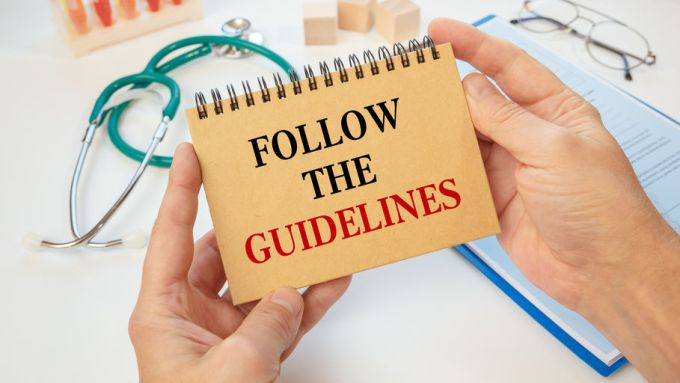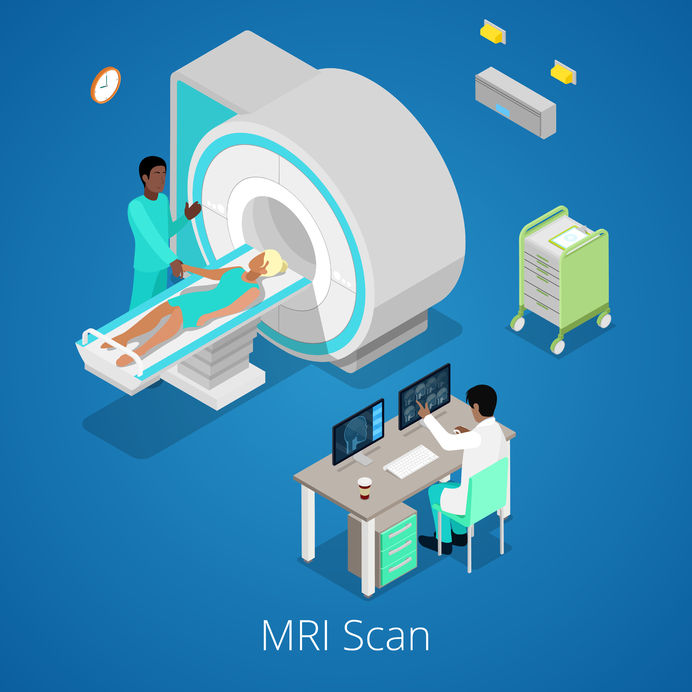Is there anyone out there who would like to collaborate to come up with a way to take HCMBeat into the future?
Will Cytokinetics New HCM Drug Challenge Camzyos?
Cytokinetics, a San Francisco biotech company, is hoping that its experimental HCM drug, aficamten, will soon be a competitor to Bristol Myers Squibb’s first-in-class myosin inhibitor Camzyos (mavacamten). Aficamten is an oral cardiac myosin inhibitor which, like Camzyos, treats HCM by reducing the the excessive number of interactions between cardiac myosin proteins.
An earlier Phase 2 study called Redwood-HCM established the safety of the drug. The positive results of Redwood-HCM led to the Phase 3 study entitled Sequoia – HCM.
Topline results of Sequoia-HCM were presented in late December of 2023, while primary results and data from the study were presented on May 13 at tthe European Society of Cardiology Heart Congress meeting held in Lisbon, Portugal. The complete paper was published in the New England Journal of Medicine on May 13, 2024.
The Study: The study enrolled 282 patients with obstructive HCM. Half were assigned to the drug while half took a placebo drug instead. The total period of observation for the study was 28 weeks. Patients enrolled in the study took aficamten for 24 weeks, followed by a 4 week period for washout of the drug. Patients in both groups were allowed to stay on background therapies including beta blockers, calcium channel blockers, and disopyramide.
Primary Endpoint: The primary endpoint of the study, as well as all 10 secondary endpoints, were met with statistically meaningful results. The primary endpoint showed an improvement to exercise capacity, quantified by an increase in peak oxygen uptake (pVO2) as measured by cardiopulmonary exercise testing (CPET) on a treadmill or bike by 1.8 ml/kg/min over a period of 24 weeks.
The study results also met multiple secondary endpoints including:
Subjective Improvement in Symptoms: Patients scores showed a 7 point increase on the Kansas City Cardiomyopathy Questionnaire. This is a questionnaire that has been validated for measuring heart failure symptoms over time by asking individuals repeated questions about how they are feeling.
Improvement in functional capacity: 34% of patients experiencing ≥1 class improvement as measured by New York Heart Association (NYHA) class (which is determined by the medical team after observation and questioning).
Septal Reduction Therapy Eligibility: Almost all of the patients who qualified for septal reduction therapy at the start of the study no longer qualified for invasive septal reduction therapies at the end (i.e. septal myectomy and septal alcohol ablation).
Safety: Aficamten was found to be safe and well tolerated. There was no need to interrupt treatment for heart failure when a patient’s ejection fraction fell below 50%. If a patient’s ejection fraction (EF) did fall below 50%, the EF recovered either spontaneously or when the aficamten dosage was decreased.
No differences in response were seen in responders based on age, sex or usage of background drug therapies.
When will Aficamten be available to patients?
Cytokinetics expects to file for regulatory approval in both the U.S. and Europe by the end of the 2024. They hope that they will be able to bring the drug to market by the end of 2025, depending on the timing and results of the regulatory process. The prescribing information and any restrictions surrounding use (i.e. the necessity and frequency of repeat echocardiograms and REMS program, both which are mandated for Camzyos) will also be determined by regulators.
For more about aficamten see these past blogs on HCMBeat:
Is Aficamten the Blockbuster Drug Cytokinetics is Hoping For?
Cytokinetics Teases Upcoming Phase 3 Aficamten Trial in nHCM
Promising Data about Aficamten Presented at Meetings
Aficamten Updates from Cytokinetics
More on Aficamten & Mavacamten from ACC 2022
Aficamten Gets “Breakthrough Drug” Status from FDA
Cytokinetic’s Drug Aficamten & Upcoming HCM Summit – Interview with Dr. Martin Maron
Is a Drug for Non-Obstructive HCM on the Horizon?
Ninerafaxstat, an investigational drug being studied by Imbria Pharmaceuticals, may be the first drug specifically for non-obstructive hypertrophic cardiomyopathy.
The results of the Improve-HCM Phase 2 study were published last week in the Journal of the American College of Cardiology (ACC) and simultaneously presented at last week’s meeting of the ACC in Atlanta.
The Improve study found that the drug is safe, and that patients demonstrated improvements to both exercise performance and symptoms.
The findings support advancement to a Phase 3 study to focus on efficacy of the drug.
You can read more about the IMPROVE trial here.
Is Aficamten the Blockbuster Drug Cytokinetics is Hoping For?
Cytokinetics today released positive results from Sequoia-HCM, its Phase 3 clinical trial of the experimental drug aficamten in patients with symptomatic obstructive hypertrophic cardiomyopathy (HCM). Patients treated with aficamten showed significantly increased exercise capacity as demonstrated by a 1.74 point increase in peak oxygen uptake (pVO2) measured during cardiopulmonary exercise testing. Improvements were also seen in provoked outflow tract gradients, and most importantly, patients felt better.
The study had enrollment of approximately 300 patients who were followed for 24 weeks.
Aficamten was well-tolerated, adverse events were comparable to those taking a placebo, and importantly, there were no instances of worsening heart failure or treatment interruptions due to low left ventricular ejection fraction (LVEF).
According to an article in Med City News, the drug may have an advantage over the Bristol Myers Squibb drug mavacamten (sold under the brand name Camzyos) because there were no reports of worsening heart failure. In the Phase 3 EXPLORER trial of mavacamten, seven patients in the treatment group experienced reductions to their LVEF.
Based on the projected success of aficamten, Cytokinetics stock price jumped by 83% and the company is said to be the subject of takeover interest from AstraZeneca and Novartis.
Cytokinetics plans to apply for FDA approval for the drug in the second half of 2024.
Complete results from SEQUOIA-HCM will be presented at an upcoming medical conference.
You can read more about the drug in these previous articles on HCMBeat:
Cytokinetics Teases Upcoming Phase 3 Aficamten Trial in nHCM
Promising Data about Aficamten Presented at Meetings
Aficamten Updates from Cytokinetics
More on Aficamten & Mavacamten from ACC 2022
Aficamten Gets “Breakthrough Drug” Status from FDA
Cytokinetic’s Drug Aficamten & Upcoming HCM Summit – Interview with Dr. Martin Maron
Results Published from REDWOOD-HCM Phase 2 Trial
First Patient Undergoes Gene Therapy for HCM
Tenaya Therapeutics and the Cleveland Clinic today announced that the first patient in Tenaya’s groundbreaking gene therapy clinical trial for hypertrophic cardiomyopathy has been dosed. This trial is testing a groundbreaking therapy intended to treat HCM caused by the MYBPC3 gene which is one of the most common HCM genes.
The Phase 1b trial is looking at the investigational drug TN-201. Preliminary results are expected in 2024.
You can find much more information about the clinical trial and Tenaya’s plans in this HCMBeat interview with Tenaya’s Executive Medical Director Laura Robertson M.D.
Viz.ai Receives FDA Approval for its HCM Detection Algorithm
Viz.ai has received FDA approval for an artificial intelligence algorithm that can spot HCM from a standard electrocardiogram or EKG.
The algorithm automatically reviews EKGs as they are performed, and alerts the cardiology care team if it identifies a patient with suspected HCM. Then, the care team is able to follow up with the patient and conduct further testing, if deemed appropriate.
The technology was developed through a collaboration between Viz.ai and Bristol Myers Squibb that was announced earlier this year.
Beating Heart Myectomy
A paper published this week in the Journal of the American College of Cardiology described the first beating heart septal myectomies performed on patients with obstructive HCM.
The Chinese single center study enrolled 47 patients with obstructive hypertrophic cardiomyopathy. Surgeons used a minimally invasive limited anterior thoracotomy using a transapical approach. The surgeries were performed while the hearts were still beating.
Since its advent in the 1960s, myectomy has been done via sternotomy, using a transaortic approach with the patient on cardiopulmonary bypass pumping blood though the body.
The paper describes the minimally invasive nature of the surgery, and stresses the benefit of the surgeon’s ability to assess obstruction in real time, instead of having to put the patient back onto bypass if more tissue removal is necessary.
46 of the 47 patients enrolled in the trial had successful removal of their obstruction, though there was one death and there were two serious complications.
A companion editorial by Dr. Hartzell Schaff of Mayo Clinic points out that while the minimally invasive approach sounds good to patients, more than 30% of the patients who undergo myectomy at Mayo also need contemporaneous procedures in order to address valve issues, atrial fibrillation or coronary artery disease. These other procedures would not be possible using the minimally invasive approach. Also, Dr. Schaff points out that post-operative pain from a minimally invasive approach is not necessarily less than that experienced from the more invasive alternative.
In summary, this approach could prove to be a promising option for some patients, but larger studies are needed. As always, patients should consider surgical volume and consistent results when evaluating whether to undergo any surgery.
New Imaging Techniques Spot HCM Before it Develops
Research funded by the British Heart Foundation using novel cardiac imaging techniques was described in a recent article in Circulation. These techniques, such as quantitative perfusion cardiac magnetic resonance imaging and cardiac diffusion tensor imaging, can detect pre-clinical hypertrophic cardiomyopathy (HCM) before the development of any thickening in the heart.
With novel treatments like myosin modulators now available to patients, and with experimental treatments such as gene therapy now on the horizon, these new imaging techniques could allow doctors to intervene at a much earlier stage in order to potentially prevent disease.
You can read more about these imaging techniques here.
Medtronic ICD and CRT-D Recall
The FDA has announced a Class I recall of certain models of Medtronic implantable defibrillators and cardiac resynchronization therapy defibrillators. The statement from the FDA can be found here.
The recall impacts 348,616 devices implanted between October 13, 2017 to June 9, 2023 with the following models being affected:
- Cobalt XT, Cobalt, Crome ICDs and CRT-Ds
- Claria MRI, Amplia MRI, Compia MRI, Viva, Brava CRT-Ds
- Visia AF, Visia AF MRI, Evera, Evera MRI, Primo MRI, Mirro MRI ICDs
These devices fail to deliver therapy due to inappropriate activation of the Short Circuit Protection feature. The issue is more likely to occur for devices with a glassed feedthrough that are configured to deliver therapy in the AX>B delivered pathway.
A reduced-energy shock, or no shock at all, may fail to correct a life-threatening arrhythmia, which can lead to cardiac arrest, other serious injury, or death.
There have been 28 incidents, 22 injuries, and no deaths for this issue.
A software update delivered to your device will address the issue. This requires a visit to your health care practitioner for a quick update. I had mine updated in a quick 10 minute visit to my ICD clinic.
To look up your device by product name, model or serial number to see whether it is impacted, click here.
NOTE: You can find the name, model and serial number of your device on the plastic identification card provided to you at the time of your implant.

The box in the upper right corner labeled “Customer Communications For This Model” will tell you if there are any advisories for your device. If this particular recall affects your device, you will see the same advisory which is circled in red in the photo below.
Patients are advised to continue routine follow ups and use the Care Link Monitoring System.
And, as always, you can call Medtronic Patient Services with any questions at: (800) 551-5544
(M – F, 8am – 5pm Central).
Gene Therapy for HCM: Interview with Tenaya Therapeutics Executive Medical Director Dr. Laura Robertson M.D.
Editor’s note: Recently, Cynthia Waldman of HCMBeat had the chance to interview Dr. Laura Robertson of Tenaya Therapeutics . Dr. Robertson is charged with leading the clinical development program for Tenaya’s experimental gene therapy treatment for HCM.
You have probably read about gene therapy and wondered whether it could ever be used to treat hypertrophic cardiomyopathy. HCMBeat has written several stories about the growing field of gene therapy, shining a light on the researchers and companies focused on this effort.
Mavacamten (Brand Name Camzyos) Approved in Europe
Bristol Myers Squibb’s first-in-class myosin modulator mavacamten (brand name Camzyos) has been approved by the European Commission for the treatment of obstructive hypertrophic cardiomyopathy in all countries which are part of the European Union.
See the press release here.












